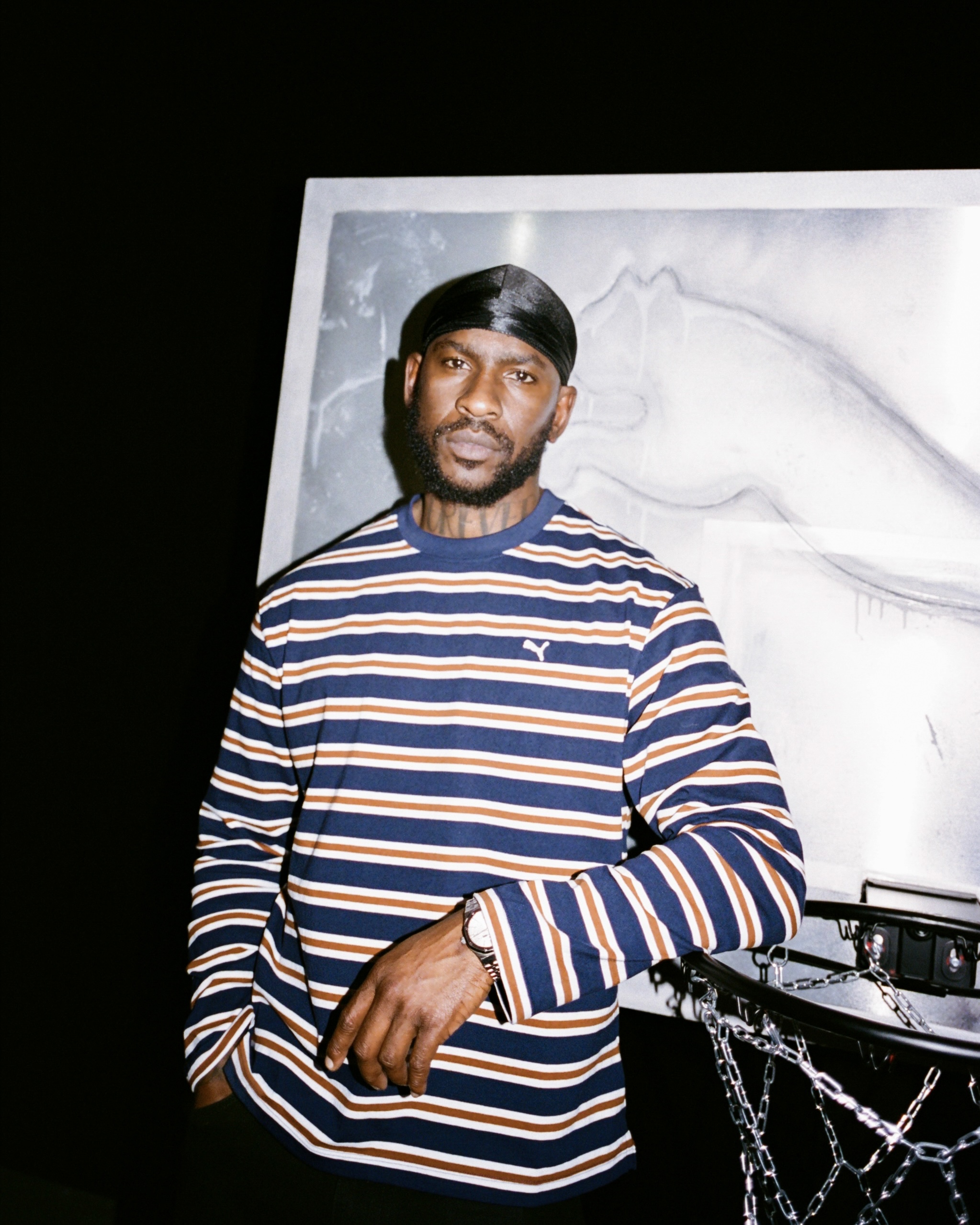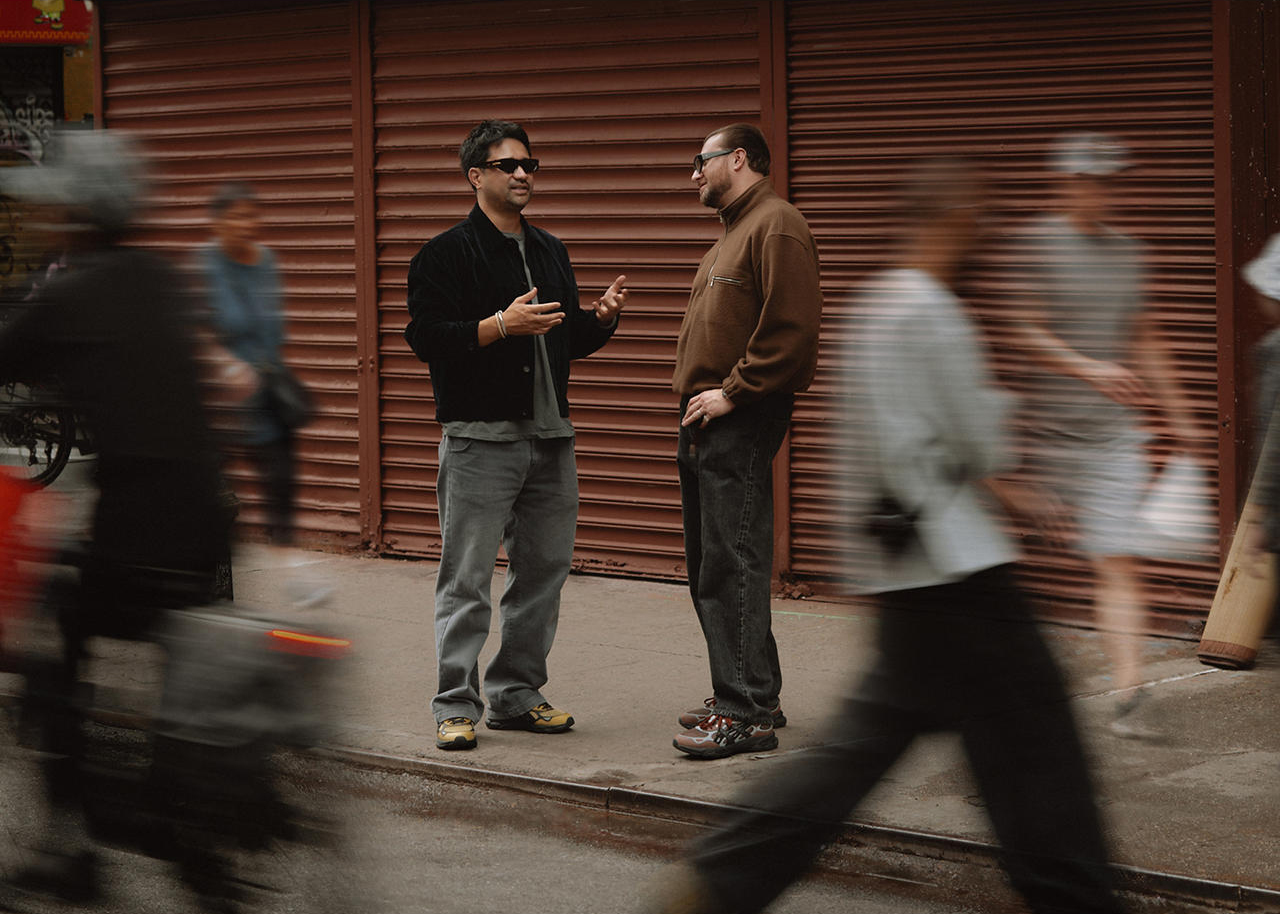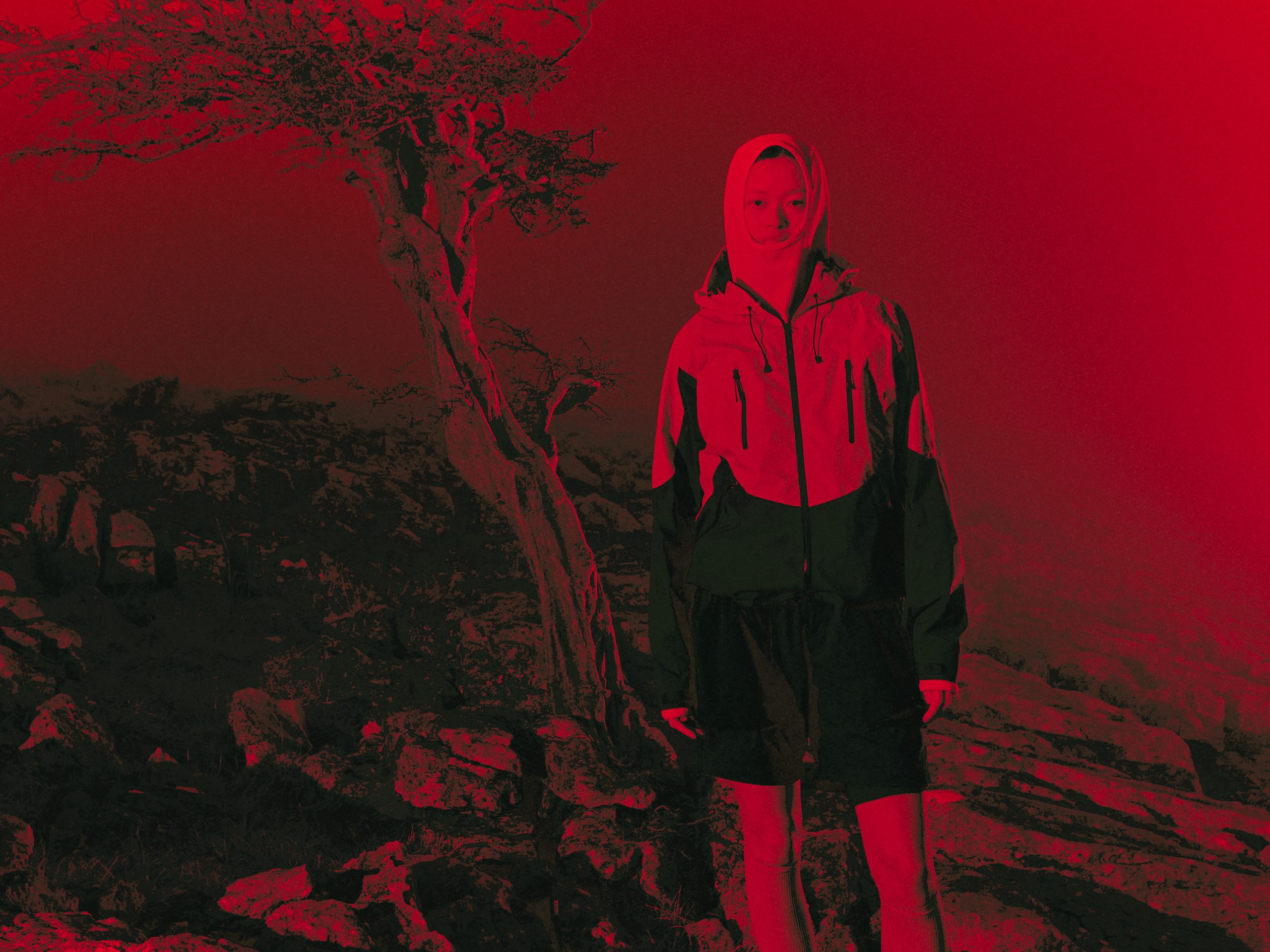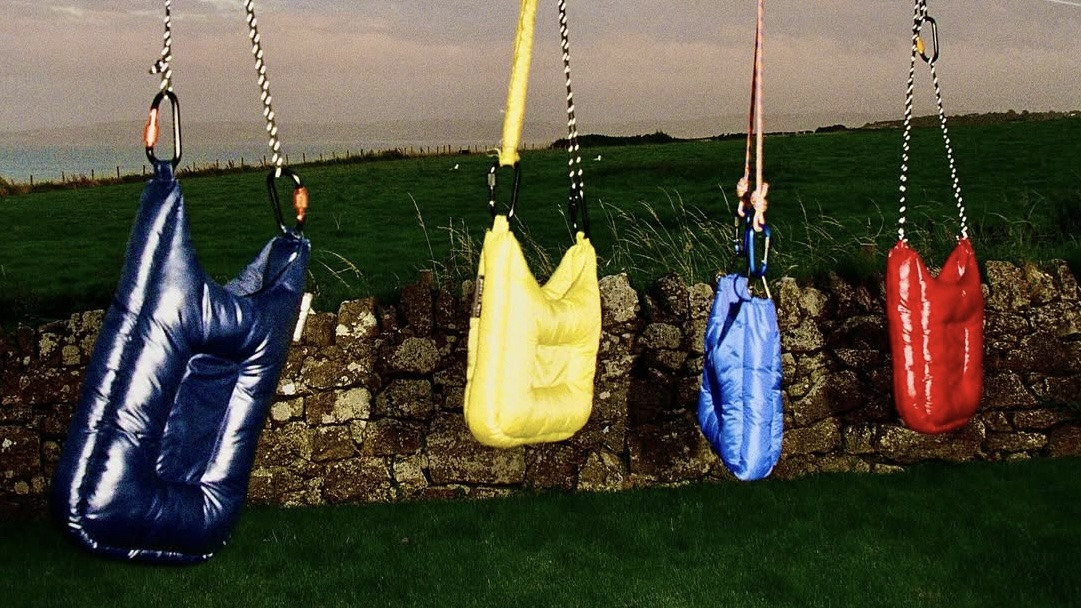The Basement speaks with the filmmaker, formerly known as Crack Stevens, about Afrofuturism, helping to shape the next generation, and his Sundance Grand Jury Prize-winning short: Lizard.
Some of you may know him from around the way and back in the day as Crack Stevens: DJ, party host, music video director and cultural curator. Today, however, BAFTA and BlackStar-nominated and Sundance-winning director, Akinola Davies Jr., goes by his given name. Despite still finding some delight in being greeted during client calls with “Hey Crack!”, Akinola decided to shed the alias around the same time he made the permanent transition from music to filmmaking. To his people, he is lovingly known as ‘Skin’ (a common typo for Akin), and ‘Uncle’, a reference to the enjoyment and pride he takes in imparting wisdom and advice to the younger generation. In the last decade, ‘Uncle Akinola’ has been transported worlds away from the sweaty basements of Kingsland Road, across the globe via the likes of the BBC, Gucci, Moncler, Telfar, Acne and Louis Vuitton, in a career that has so far transcended definition.
We speak over Zoom — from our studio in Brixton, to his in Somerset House, a space he has occupied for the past year alongside a plethora of artists including fellow director Jenn Nkiru, designer Gareth Pugh, artist Rene Matic and musicians Beatrice Dillon and Nabibah Iqbal. Being surrounded by talent is nothing new for Akinola of course. He has always invested in his peers, self-funding music videos for his friends and activating club nights, including the legendary PDA. Humility, gratitude and excitement are all immediately apparent as we speak. Having won the most prestigious accolade in independent filmmaking, the Short Film Grand Jury Prize at Sundance for his 18-minute Magical Realist-Afrofuturist-non-linear narrative Lizard, he remains grounded and mildly unphased. He tells me how he was initially unaware of the film’s magnetic potential of Lizard; indeed, he was originally gassed to “just put the film on YouTube!” Luckily for us, his producer knew they had something special, and made the suggestion of submitting the film to festivals. The rest, as we now know, is history.

Set in Lagos, Akinola is most proud of “the environment in which we made the film.” He reminisces fondly about what seems to have been an idyllic dynamic on set, a place “where people feel valued, they enjoy it, feel like they have a voice, and are paid well.” While the nearly all-Nigerian cast and crew were initially confused about the concept of a ‘short’ film that sits outside the Nollywood tradition of feature lengths, Akinola is excited that the Sundance win may now court the opportunity to turn the film into a feature. He certainly considers himself Nollywood, much to the joy and excitement of the Nigerian press, and although the film hasn’t reached wide audiences due to the lifecycle and limited run of film festivals, the reaction in his homeland has been overwhelmingly positive despite navigating sensitive themes of religion, sex, corruption and violence. Lizard triggered a lot of memories for Nigerian viewers, and “if people see themselves in that, that’s like, home run, you know?”
As a Nigerian-British filmmaker, his diasporic identity is an asset. Akinola asserts that this space is “fertile ground,” or, in other words, “it ultimately means you’re not stuck in this admonition of culture or tradition – if anything you’re in a position where you’re creating a version of all these things together, not stuck on this monolithic idea of what it means to be someone from somewhere. You’re kind of like an alien and you’re figuring it out – even though it might be an alienating space, I think that’s a good space to be in.” This is an ethos held even before Lizard; his BBC project ‘Black to Life’ is testament to this, a fascinating and unique reimagining around the concept of mnemonics.

Lizard follows 8-year-old Juwon as she accidentally stumbles upon a series of shocking events in a church. I won’t spoil it further, other than to say that the film features a gargantuan lizard (to be fair, the hint is in the name.) Sumptuously shot with the assistance of cinematographer Shabier Kirchner (whose credits include the Steve McQueen BBC anthology Small Axe) and a reverberating soundtrack composed by Tim Dewit (formerly of Gang Gang Dance), Akinola wrote the film alongside his brother Wale, based on their childhood experiences growing up in Nigeria. As the Davies brothers recalled events from their youth, more ideas began to formulate, and they were surprised at how vividly Akinola remembered the details of their past. I ask what devices the director uses to optimise memory in an age of hyper information. For the past decade, he has been recording conversations with his mum as part of an archival process —as well as for the benefit of his nieces, nephews and potential children — that has allowed more ‘juicy bits’ to re-emerge as the years have gone by. As a storyteller, he is inspired by different generations. Some of those conversations have been difficult, as he concedes, “we’re tryna unlearn and break a whole bunch of stuff, but sometimes you just meet people at their pace and their level.” He proudly shares his recent discovery of one of these ‘juicy bits’ from his mum’s past: she used to run a record label, he tells me excitedly, and once brought Stevie Wonder to Nigeria. Beaming but bemused, he exclaims: “Oh my God, how am I just finding this out in my thirties?!
In the pursuit of ‘truthful commentators’ in an era of misinformation and agenda, he looks to comedy, and in particular political satire in the works of John Oliver and Trevor Noah. He loves Armando Iannucci’s Westminster satire The Thick of It too, seeing the show as a space that is “self-deprecating and self-aware at the same time, because that balance exists; they can ride on that – they can take the piss out of the truth.” On the topic of self-awareness, Akinola sees worlds like the fashion industry as distinctly lacking, an old school industry desperately trying to understand the new, with “so much wealth owned by a certain number of companies and so much just being…drip fed.” He remarks similarly of the music world, specifically on the notion of ‘diversity and inclusion’. “If people at the top aren’t self-aware or self-critical, you’re gonna put a lot of pressure on people of colour who will have to bend or break or be the spokesperson for the whole mass,” he says. “The ‘diversity’ conversation needs to be shifted to equity at the top, rather than diversity at the bottom.”

In his evolution to a full-fledged film director, he has learned to apply a more disciplined intention to his craft, both in content and technique. “Granted, I love a ratchet video, but there’s just so much more we can film, there’s so much more going on that’s interesting, that humanises people,” he explains. “But when you’re dealing with people that aren’t invested in community…it’s just sex, drugs and violence all the time.” Akinola is constantly learning in every step he takes, giving him a whole new appreciation for the process and describing the dance of camera and actor known as ‘blocking’ as “a mazzaleen…there’s so much conversation in how we move the camera, how you frame the camera, that just makes it so exciting. I’m quite overwhelmed with life at the best of times — I’m quite an emotional person, so this might sound pretentious — but it speaks to the way I feel, the way that I see the world.” Unlike many of his contemporaries with formal film school training, Akinola attended a 3 month crash course workshop, and has at times has felt out of his comfort zone. However, he believes “fear doesn’t really exist, so at some point you’re gonna have to confront this thing you’re super scared of, and I think that means I’m holding on to a lot of stuff even if I’m not cognisant or aware.”
His next release is ‘X Us’ – part of Film4’s Black science-fiction anthology series alongside directors Adeyemi Michael, Nadia Otif, Jeremy Ngatho Cole and Eliott Barnes-Worrell. Although he fondly describes the project as “sci-fi on a shoestring”, Akinola is thrilled to have earned access to some state-of-the-art equipment and VFX. “The older we get and the more opportunities we get…man’s gonna play with some toys!” he laughs. Concerning the ‘Afrofuturist’ realm, he is quick to shun elitist stereotypes of the concept (á la Sun Ra) referring to a more expansive definition coined by director Rhea Storr as ‘Black radical imagination’. “[Dazed Editor-in-chief] Ib Kamara is Afrofuturist, Grime…Dancehall, the sprinter Alyson Felix, Serena Willams,” he expands. “I dunno if it’s a Taurus trait, but I guess I’m overwhelmed by the human experience, and I think that allows me to see everything in magical terms. My mum’s Afrofuturist – my 1 year old niece!”

Investing in futures is paramount for Akinola. “As one of the internet elder statesmen I really love reaching out to young people and saying ‘if there’s anything you need I’ve got you’,” he says. Participating in panels for Netflix x Black Curriculum, and most recently Grounding Practice at Somerset House Studios — a workshop providing a relaxed and informal space to exchange ideas and promote discussion — he demystifies filmmaking and the creative industries, making the argument that “young people think getting into film is just about ‘being creative’ – that’s just about one quarter of it. A quarter of it is about networking, another quarter is about being committed to what you’re doing, and another quarter is about being able to pick yourself back up again after you’ve been rejected – how you deal with rejection, resilience. I also think another bit is being grounded – having a job to pay your rent, you know?” His impetus for filmmaking was found through staying with a friend’s family on school holidays whose dad was an Editor, their bohemian family values and a functioning unit an inspiration to Akinola. “It was just so idyllic,” he remembers, “like – whatever this is, I want this.” He has worked with his family on various projects, and has over the years assumed a chosen brood of creative souls, including Tems “who’s like family”, and Curl (Mica Levi, Coby Sey, Brother May and Tirzah) who he claims are “the best thing since sliced bread.”
Our interview ends with a continued train of shout outs and ones-to-watch: Nigerian directors Dafe Oboro and Chuko & Aerie, Nigerian designer Maki Oh, graphic designer Effie Crompton, tattoo artist Tosca, photographers Gabriel Moses, Zainab Abelque and Gino, model Sano Turdiev, harpist Mariam Adefris and collective Ladies Music Pub. It is characteristic of Akinola’s humility and genuine care for his peers and contemporaries that he closes out an interview about himself in this manner. Collaboration and bringing people up are his bread and butter; as lucky viewers, long may it continue.
‘X Us’ and the Foresight Anthology will be available to view on Film4 / All4 in November.
Written by
Halina Williams






